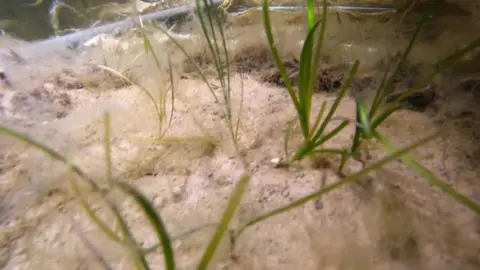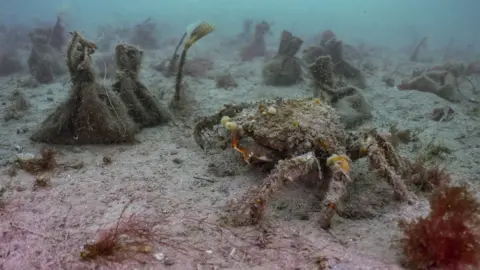Plymouth seagrass project switch after low yield
 BBC
BBCA project to reintroduce seagrass in Plymouth Sound has seen only 6% of seeds germinated.
The National Marine Aquarium said it was now switching to seedlings already growing on matting to increase yields.
Seagrass is seen as a way of fighting climate change by absorbing carbon dioxide from the atmosphere.
Thousands of seed bags were dropped onto the sea floor in 2021 in a £2.5m project to grow eight hectares (80,000 sq m) of meadow in Devon and Hampshire.
 Ocean Conservation Trust
Ocean Conservation TrustBut the seeds became lost or buried by tides, said Mark Parry from the National Marine Aquarium in Plymouth.
"The idea is that we germinate the seeds in a closed environment where we can tightly control those conditions," he said.
"We get a higher germination rate, we allow them to develop their roots and the rhizomes to spread so the seedlings are more developed and sturdy before they are transplanted into the marine environment."
The seedlings are being germinated on coconut fire matting which is being tested at a University of Plymouth wave-making machine.
The university is helping the aquarium find the best sites for transplanting the seeds by using the wave-making machine to test the seedlings under different conditions.
The plant, found in shallow waters of coastal regions, has been declining worldwide by about 7% annually since 1990.
As well as helping to manage carbon emissions, the plant also provides a habitat for juvenile fish and endangered marine animals like seahorses.

Follow BBC News South West on Twitter, Facebook and Instagram. Send your story ideas to [email protected].
